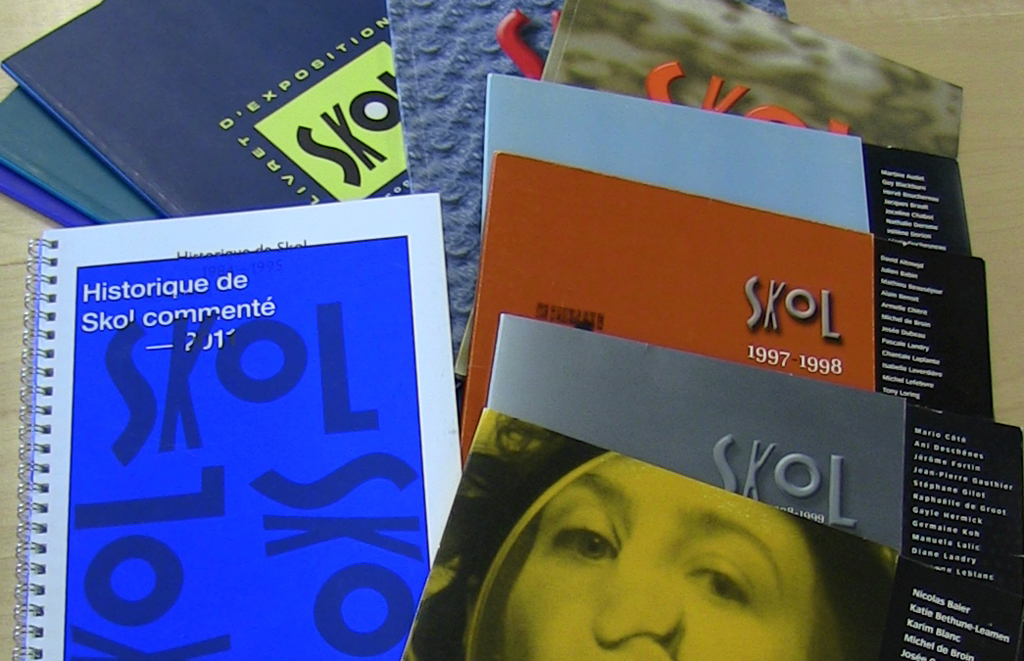Highlighting Open Access material from e-artexte
October 20-26, 2014
Organizations make their publications accessible online using the e-artexte digital repository, which currently holds more than 350 public digital documents. To celebrate Open Access Week, Artexte is highlighting Open Access material from e-artexte.
The Centre des arts actuels Skol has been actively using e-artexte to share their publications freely. We asked Anne Bertrand, Skol’s General and Artistic Coordinator from 2004 to 2012, to explain the centre’s involvement with open access:
“Skol started using Creative Commons licences because of my personal position on copyright in the context of artist-run culture and the desire to liberate the knowledge from any constraints that could interfere with its free circulation. Also, I was greatly influenced by the thinking of Stephen Wright and François Deck: their belief was that copyright, in our highly specialized sector, was anathema to the creative process that relies on borrowing, and remixing, etc. Also because of my belief that the more knowledge circulates, the greater the possibilities for the artists and authors to be on the radar of curators and other organisations.”
Find Skol publications in e-artexte
Over the past few months, Artexte has been working with nomorepotlucks (NMP) to deposit copies of their bimonthly journal in e-artexte. NMP is an online and print-on-demand feminist journal of art, culture and politics founded in 2009 and which operates entirely on a volunteer basis.
We asked Mél Hogan, the Artistic Director, co-curator and designer of NMP, and one of its cofounders, why she decided to make the journal available in the e-artexte open access repository.
“From the very beginning, I wanted NMP to be widely accessible because that seems to best align with the queer feminist underpinnings of the journal. Accessibility and visibility are important because historically this type of content could have been censored, banned, or destroyed. Times are different now, but I’m wary of the traditional archive, and its authoritative claims. For example, I consider that the queer networks that activate and maintain the journal are the product of the journal – which is harder to archive in any tangible or digital format, or think through in a traditional archival framework. So we can disperse and distribute the contents of NMP in many ways which mimic the ways that queer networks are formed and maintained. To answer your question, making NMP available in an open access repository is only one part of our archival solution.”
